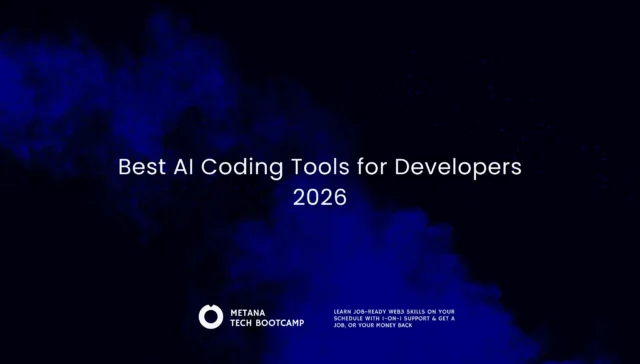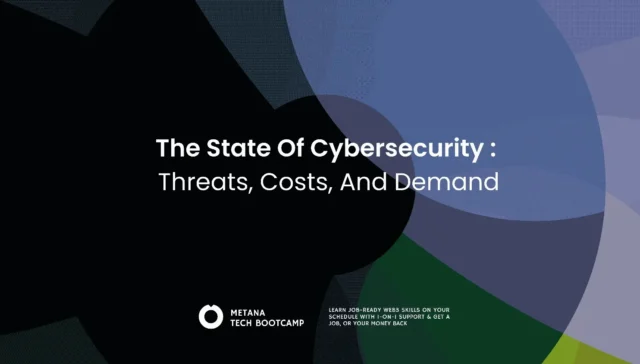TL;DR
The average Web3 developer salary in 2025 ranges between $80,000 and $250,000+ USD per year, depending on factors like role, experience level, and the company or project. Senior engineers working on smart contracts, Layer 1 protocols, or blockchain infrastructure are typically at the higher end of the spectrum. Meanwhile, freelancers and DAO contributors might earn less in consistent income but often benefit from flexibility and long-term value through token-based incentives.
Introduction
In 2025, the blockchain industry has evolved from a disruptive trend into a foundational pillar of the digital economy. No longer confined to speculative trading or experimental projects, Web3 technologies now play a critical role in real-world systems—powering everything from decentralized finance (DeFi) platforms and blockchain-based games to global supply chains, identity verification systems, and digital governance frameworks.
This shift from hype to utility has driven a surge in demand for experienced developers fluent in the language of decentralization. Startups, DAOs, and enterprise-level blockchain initiatives are all competing for a limited pool of talent—those who can build secure smart contracts, architect scalable Layer 1 and Layer 2 protocols, and design seamless user interfaces for decentralized apps (dApps).
But Web3 developers are not a homogenous group. Their compensation varies significantly depending on role, expertise, and tech stack. The average Web3 developer salary can range widely: a Solidity developer working on Ethereum smart contracts may earn differently than a protocol engineer focused on consensus algorithms in Rust, or a frontend developer using React and ethers.js to deliver intuitive dApp experiences. Each specialization commands different market value based on complexity and demand.
Types of Web3 Developer Roles
To understand earnings, it’s important to know the different roles within Web3 development:
- Smart Contract Developer: Focuses on Solidity, Vyper, or Rust-based contracts (Ethereum, Solana, etc.).
- Frontend Web3 Developer: Builds DApps using React, Next.js, ethers.js/web3.js.
- Backend Web3 Developer: Works with The Graph, Node.js, API integrations, and IPFS.
- Full-Stack Web3 Developer: Combines both frontend and backend Web3 development.
- Protocol Engineer: Builds core blockchain infrastructure (Layer 1, Layer 2, ZK tech).
- DevOps/Infrastructure Engineer: Deploys and scales blockchain nodes and services.
How Much Do They Actually Earn?
On average, junior Web3 developers in 2025 earn between $80,000 to $110,000 annually, particularly those just transitioning from Web2. As they gain more experience, mid-level developers can expect salaries between $120,000 and $180,000.
Senior smart contract engineers, especially those working in high-stakes industries like DeFi, typically earn $200,000 to $300,000 or more per year, sometimes with additional compensation in the form of equity or tokens. Protocol engineers working on blockchain foundations also see similar earnings, often at the upper end of the salary spectrum.
Front-end and full-stack Web3 developers generally fall into a slightly lower bracket, with experienced developers earning between $120,000 and $220,000, depending on the organization, region, and their ability to ship production-ready DApps. DevOps and infrastructure engineers, who help manage and scale decentralized systems, earn comparable figures, often crossing the $150,000 mark as they specialize in running blockchain nodes and secure environments.
Freelance developers and DAO contributors often have a different kind of earning model. Their monthly incomes may range from $3,000 to $10,000, depending on the number of bounties or gigs they complete. While their base income may not always be as predictable, they often receive token allocations or governance rights, which can translate to significant value if the project succeeds.
Web3 Developer Salaries in 2025 (Annual, USD)
| Role | Avg Yearly Salary | Min Yearly Salary | Max Yearly Salary |
| Smart Contract Developer | $190,000 | $90,000 | $300,000+ |
| Protocol Engineer | $200,000 | $100,000 | $320,000+ |
| Frontend Web3 Developer | $140,000 | $75,000 | $220,000 |
| Full-Stack Web3 Developer | $160,000 | $85,000 | $250,000 |
| Web3 DevOps Engineer | $150,000 | $80,000 | $230,000 |
| DAO Contributor / Freelancer | $90,000* | $30,000* | $150,000+* |
*Note: DAO contributors and freelancers often receive compensation in the form of tokens or governance rights, which can significantly increase the total value over time.
Key Factors That Influence Salaries
- Experience: Developers with 3–5 years of hands-on blockchain experience, particularly those who’ve worked on audited smart contracts or contributed to open-source Web3 libraries, are in the highest demand.
- Location: While developers based in North America or Western Europe continue to earn the highest salaries, the remote nature of most Web3 jobs allows talented developers from Eastern Europe, Asia, and Latin America to access competitive opportunities globally.
- Organization Type: Venture-backed startups and established blockchain companies often offer higher fixed salaries along with equity. DAOs and community-driven projects might pay less in USD but often compensate with tokens, profit-sharing models, or staking rights. Some developers even split their time across multiple projects, earning a diverse income portfolio.
Conclusion
Web3 development in 2025 continues to offer some of the most lucrative and flexible career opportunities in tech. Developers skilled in blockchain technologies, especially those with experience in smart contracts and infrastructure, are reaping the rewards of a still-growing ecosystem. The potential for earning is not just in salary, but also in token-based incentives, early-stage equity, and community influence. Whether you’re entering the space as a junior dev or evolving into a protocol engineer, the Web3 world in 2025 is one where skills are both well-compensated and in high demand.
FAQs
Do I need a degree to become a Web3 developer?
- No. While a CS degree can help, many successful Web3 developers are self-taught or transitioned from Web2 backgrounds. Hands-on experience and GitHub contributions matter more than academic credentials.
What’s the best way to start earning in Web3?
- Start by contributing to open-source Web3 projects, completing bounties on Gitcoin, or building small DApps. Many developers land full-time roles after proving themselves through community contributions.
Are smart contract developers really the highest paid?
- Yes. Due to the complexity and security risks involved, smart contract developers, especially those with audit experience, are among the highest earners in the space.
Can I work remotely in Web3?
- Absolutely. Most Web3 roles are remote-first, and many teams are globally distributed. Time zone flexibility and async communication are standard in the industry.
What programming languages should I learn for Web3 development?
- Solidity is essential for Ethereum development. Rust is in demand for ecosystems like Solana and Polkadot. JavaScript/TypeScript remains important for frontend and full-stack developers.







